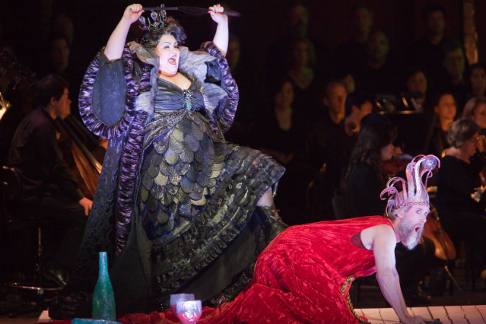This is an original short story by Black Feather/Cleite Dubh - Copyright Cleite Dubh 2018

The anterior capital always had a popular thing going. It drew people out of the major capital and put them on the road and in danger of being robbed. But also into the air. The roads were always busy with goats and horses; donkeys and children; slaves in cages of wood; merchants and bankers; holidayers; and of course, kinglys and dames.
As a result of this surge out of the capital, major stop points developed. These became oasises in the storm of to and fro.
The plays were always vulgar. The smell of death was never far away. Poorer enthusiasts would often steal in order to buy tickets. The shows were that sort after. The dreams of this unique people were fashioned after these rude yet intriguing depictions. Society was formed and shaped by them.
Rulers made a note to become well acquainted with the writers. Performers, however, weren't treated with such dignity. They were single use pieces of muck, promptly discarded or killed shortly after their rapturous debut. Most performers weren't from the cities but were coaxed out of the outlying villages for the city dwellers' dangerous games, usually with a small bag of silver or a flagon of wine. Many performers' deaths were christened with the same gift that drew them out of their security in the first place. Silver as ash, red wine as a protective moat and raw hard dry packed dirt to complete the sadist's dream.
None of the city folk questioned the disposal of the 'lucky ones' to die so early in the game. Living longer often meant humiliation, and even torture. Some of them made it back to the villages and a careful vigilant watch was placed over them by their peers. Living meant a life sentence of heartache, hiding and insecurity. Suicide was also common. If a city dweller recognized them, a stoning for the Immense Pleasure would be called on the spot.
Normal was not normal in this place of places. To most it The Great Theatre was seen as a necessary evil to keep society lubricated. Blood and fear was localised to a gentle few in order to save the rest from the responsibility of their own inner darkness.
In time, the performances and the nature of them were discovered by the neighbouring civilisations. Shortly after, war began with little diplomatic talks. Entreatments were sent further afield to gain the support of yet more surrounding civil races; and a morally influenced collective of nations moved to act decidedly against the vulgarities of the practice of the heretic nation to put an immediate stop to these practices which were advertised in their anti-theatre-propaganda campaigns as 'despicable' and 'satanic'.
The people of the first nation were numerous. They fought and won the first war. But they were not a fighting people. Having lost many of their soldiers in the first war (which lasted over a decade) and overcome by large numbers from other united sovereignties they then fought and lost their second bloodbath. And what an offering of red it was to the gods appeased by such distress and havoc. Despite the victory, the memories of the vulgarities remained and the people that witnessed these slimy practice's success in maintaining social equanimity were now spread far and wide through all known lands as refugees seeking asylum. This, it seems, is when the real trouble began. A demon of a nation now became a demon of the known world.
Despite efforts to quell all interest in the activities of the heretic nation and laws passed to restrict them, less offensive imitations developed. Competing theatre companies from different cities and states, set out to impress the populaces without the offence of the original plays. Thus the began the Play Wars, and that's the world we live in today.
In the present, twenty years on, a form of the original play regularly appears on almost every street corner of a central district of a popular city having been outlawed from the theatres. These new tame versions of the first vulgarities maintain a few steady seconds worth of attention before reliably and judicially gathering a few coins.. a steady income for the actors. The memory and reputation of the original performances is enough to trigger an unconscious response, captivating the viewer while pressed on the matters of their daily dues.
And so the street performers of today, hold a valuable seat in the modern economy of today, brushing shoulders with the upper-middle class of existence. Taking their cake.
"The first shall be last and the last shall be first." - Jesus